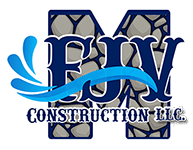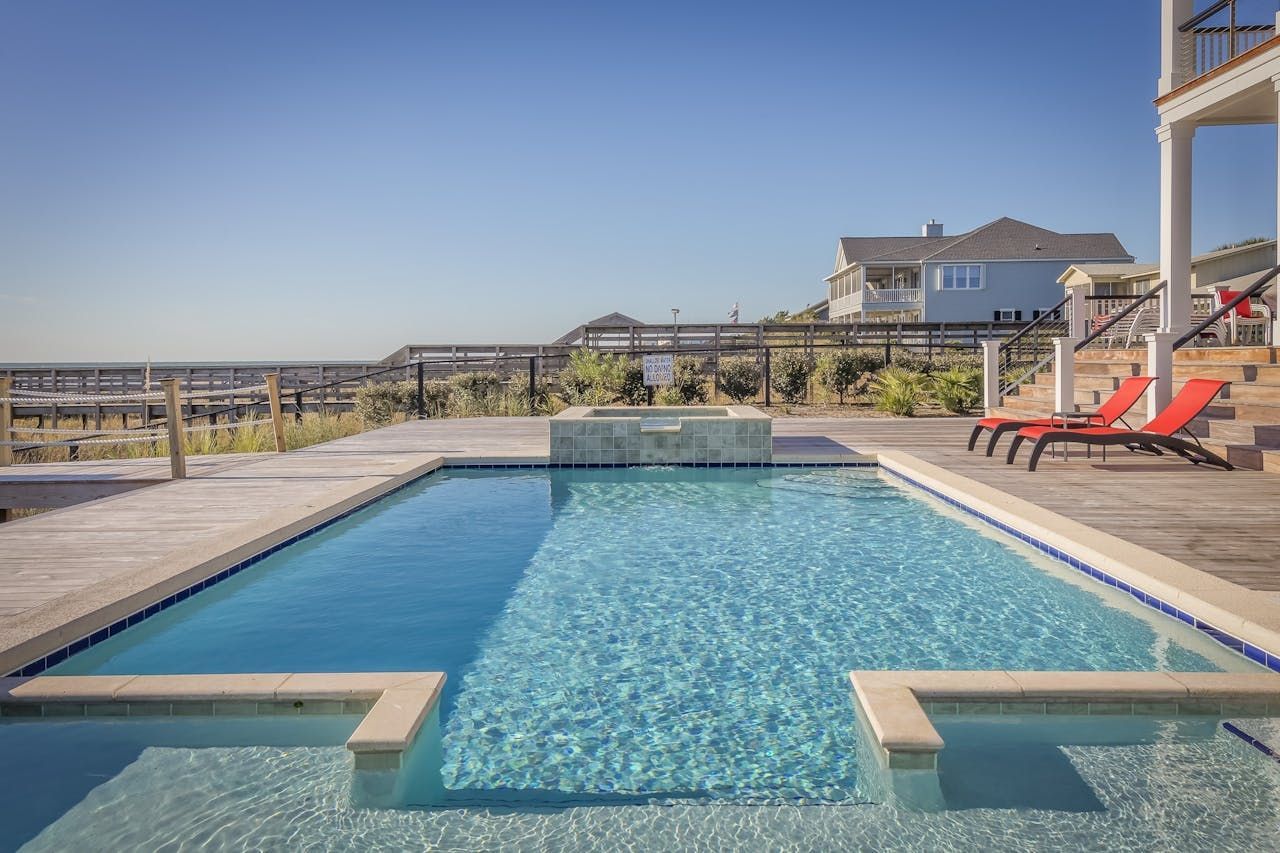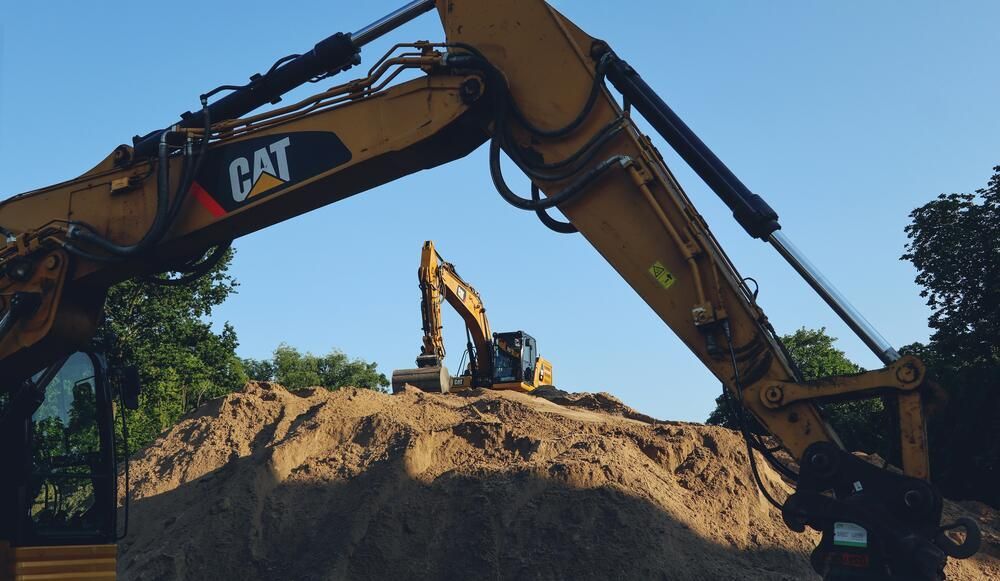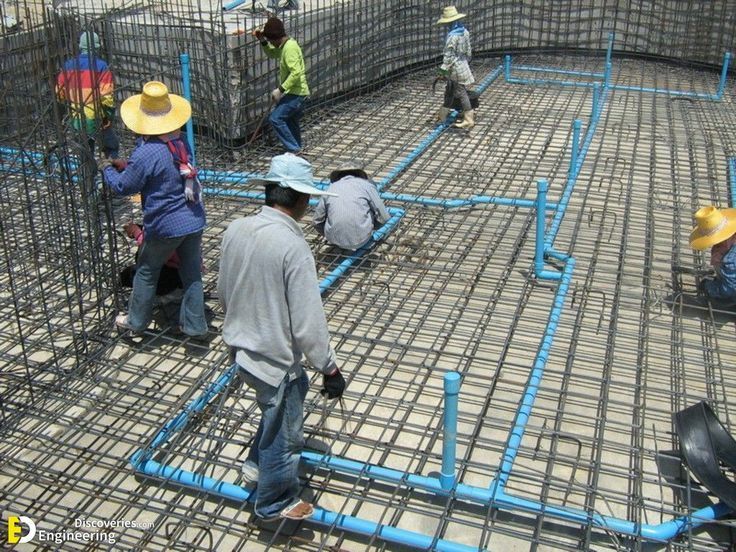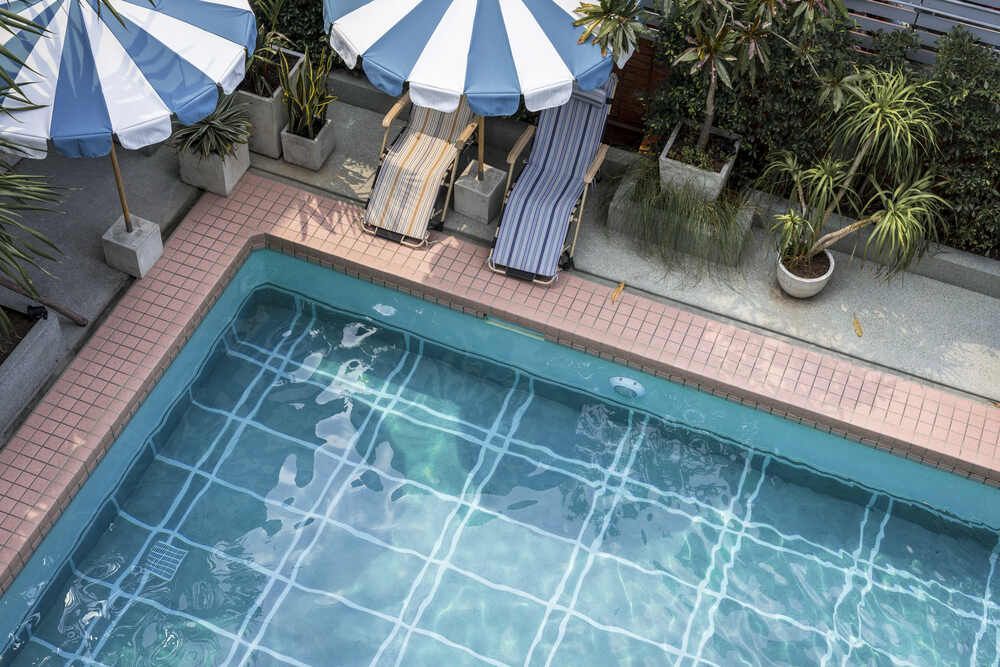8 Questions to Ask Your Contractor Before Pool Installation
Planning to install a pool in your backyard is an exciting endeavor, but it requires careful consideration and choosing the right contractor is crucial. According to statistics, there are over 10.4 million residential pools exisiting the United States, highlighing the popularity and potential value a pool can add to a home. Asking the right questions can ensure you find a reliable professional who can bring your vision to life. Before diving into your pool installation project, here are eight essential questions to ask your contractor to ensure a smooth and successful installation.
Table of Contents
Key Takeaways
8 Critical Questions to Ask Your Contractor Before Pool Installation
1. What Experience Do You Have with Pool Installations?
2. Can You Show Me Examples of Similar Projects You Have Completed in the Past?
3. Are All the Necessary Works to Complete This Pool Included in the Contract?
4. Will Any Work Be Subcontracted Out?
5. Do You Offer Maintenance Training After Installing the Pool?
6. What Is Included in the Warranty in My Contract?
7. Will My Pool Be Built to Be Energy Efficient?
8. How Long Do You Expect the Construction and Installation to Take?
Key Takeaways
✔ Make sure your contractor has specialized experience in pool installations, specifically the type of pool you desire.
✔ Ask the contractor for a portfolio of their previous work and contact past clients for references.
✔ Ensure all aspects of the pool installation, including excavation, plumbing, and electrical work, are detailed in the contract.
✔ Determine if any part of the project will be subcontracted.
✔ Confirm that the contractor provides training on how to maintain your pool, manage chemical levels, and operate the filtration system.
✔ Understand what the warranty covers, including equipment, labor, and structural integrity, and how long each coverage lasts.
✔ Discuss energy-efficient features that can be included in your pool installation.
✔ Get a clear timeline for the completion of your pool installation.
8 Critical Questions to Ask Your Contractor Before Pool Installation
1. What Experience Do You Have with Pool Installations?
Specialization
The specialization of your contractor in pool installations is critical. Pool installation is a complex field requiring specific skills and knowledge, and you want a specialist who understands every facet:
Type of Experience: Ask potential contractors about the specific types of pools they have installed. Pool installation varies significantly depending on the type, such as inground versus above-ground, fiberglass versus concrete, and chlorinated versus saltwater systems. Each type comes with its own set of challenges and requirements.
Depth of Experience: It's beneficial to inquire how many projects they’ve completed that are similar to what you envision. For instance, if you’re interested in a fiberglass saltwater pool, has the contractor successfully installed several of these?
Years in Business
The duration a company has been in business often correlates with its level of experience and reliability:
- Track Record: Companies that have been in the pool installation business for many years are likely to have developed a certain level of expertise. Longevity in the industry suggests that they have a history of satisfying customers and maintaining a standard of quality.
Reliability and Reputation: Older, well-established companies usually have more at stake in maintaining their reputation. They are more likely to honor warranties, fulfill commitments, and be available for post-installation service. You can check reviews or ask for referrals for real-life feedback on their business practices and customer service.
Stability: A company that has managed to stay in business for a long period is typically financially stable, which is important for project continuity and warranty enforcement in the future.
2. Can You Show Me Examples of Similar Projects You Have Completed in the Past?
Portfolio Review
This is important for several reasons:
Assessment of Craftsmanship: By examining the details in a portfolio, you can gauge the quality of construction and finishing touches. Look for clear, high-resolution images that show the pool from various angles, the surrounding area, and any integrated features like decking, lighting, or water features.
Style Compatibility: Every contractor may have a certain style or a range of styles they are particularly good at executing. Reviewing their portfolio helps you determine if their aesthetic aligns with what you envision for your own pool installation.
Diversity of Projects: A diverse portfolio also indicates the contractor’s versatility and adaptability to different types of projects. This is particularly important if your pool installation involves unique challenges such as limited space, complex integration with existing landscaping, or specific design requirements.
Reference Checks
While a portfolio shows you what a contractor can do, references tell you how they go about doing it.
Reliability and Communication: Past clients can provide firsthand accounts of how reliable the contractor was throughout the pool installation process. Did they start and finish according to the initial timeline? How well did they communicate updates and issues?
Adherence to Budget: References can also inform you about the contractor's accuracy in estimating costs and sticking to budgets. Unexpected issues can arise in any construction project, but chronic underestimating may be a red flag.
Post-Installation Support: It’s important to know how the contractor handles post-installation queries and any issues that come up after the pool is completed. Are they responsive and willing to address concerns? This is crucial for ongoing maintenance and any warranty claims.
Overall Satisfaction: Ultimately, you want to know if the clients were happy with the end product and their overall experience. Would they hire this contractor again? A high level of satisfaction from previous clients is a strong endorsement.
3. Are All the Necessary Works to Complete This Pool Included in the Contract?
Scope of Work
The scope of work in the contract should meticulously detail every task required to complete the pool installation from start to finish. Here’s what to consider:
Detailed Descriptions: Each phase of the pool installation process should be described in detail. For example, the contract should specify who is responsible for the design and planning, what materials will be used, who will handle the excavation, how the plumbing will be installed, and what electrical work is required.
Project Milestones: The contract should outline key milestones within the project timeline. This includes commencement dates, deadlines for phases like excavation or plumbing completion, and the final completion date.
Included Services: Make sure the contract specifies which services are included. For instance, does the contract include clearing the site after excavation, or is that considered extra?
Hidden Costs
Hidden costs can escalate the total price of pool installation significantly if not identified early. Here are some common hidden costs and how to address them:
Landscaping: After a pool is installed, the surrounding area may need significant work to restore or enhance the landscape. Ask if basic restoration is included or if it will incur additional charges.
Special Equipment: Depending on the design and features of your pool, special equipment may be necessary. For instance, if you opt for a pool with a vanishing edge, more complex structural and hydraulic planning is needed, which might not be included in the standard quote.
Permits and Fees: Ensure that the contract clarifies who is responsible for obtaining necessary permits and paying associated fees. Sometimes, these costs are not included in the initial quote and can be substantial.
Overruns and Contingencies: Ask how the contract addresses potential cost overruns. It's common for projects to encounter unforeseen issues that require additional funds. Determine if there is a contingency budget and who is responsible for covering these costs.
4. Will Any Work Be Subcontracted Out?
Subcontractor Roles
In many construction projects, including pool installations, it is common for the main contractor to hire subcontractors to perform specific tasks. These tasks can include specialized work such as:
Electrical Work: Installation of lighting and electrical systems that are compliant with safety standards.
Plumbing: Laying pipes and installing the filtration system.
Landscaping: Designing and implementing a landscape around the newly installed pool.
Concrete and Masonry: Handling the concrete pouring, curing, and decking.
Subcontractors are usually experts in their respective fields, which can actually be beneficial in terms of the quality and efficiency of the work performed. However, using subcontractors also introduces several layers of complexity:
Accountability: When different aspects of the project are handled by various parties, it can become challenging to hold a specific entity accountable for issues that may arise.
Consistency: Different subcontractors may have varying standards of quality and service, which can affect the overall cohesion and quality of the final product.
Questions to Ask Your Main Contractor
To ensure that the involvement of subcontractors does not negatively impact your pool installation, consider asking your main contractor the following questions:
Who are the subcontractors? Knowing who will be working on your project is fundamental.
What is their expertise and track record? Ask for details about the subcontractors' qualifications and previous projects.
How will quality be controlled and assured? Understand the specific mechanisms the main contractor will use to oversee and ensure the quality of subcontracted work.
5. Do You Offer Maintenance Training After Installing the Pool?
Maintenance Training Details
Maintenance training is an essential component of any pool installation service because it empowers you, the pool owner, with the knowledge and skills needed to care for your pool effectively. Here’s what this training typically covers:
Basic Pool Care: Introduction to routine tasks such as skimming the pool surface, vacuuming the pool, and brushing the walls and floor.
Chemical Management: Training on how to test water chemistry, including pH, chlorine levels, alkalinity, and other crucial parameters. You’ll learn how to adjust these levels to maintain water clarity and hygiene, preventing algae growth and ensuring the water is safe for swimming.
Filtration System Operations: Detailed instructions on how to operate the pool's filtration system, including how to clean and replace filters and the importance of maintaining a regular filtration schedule.
Seasonal Maintenance: Guidance on preparing your pool for different seasons, particularly if you live in a region with a significant change in seasons. This includes winterizing your pool or getting it ready for summer.
Safety Practices: Education on safe handling and storage of pool chemicals, as well as safety tips to prevent accidents around the pool.
Ensuring Comprehensive Training and Support
To make sure you get the most out of your pool installation and subsequent maintenance, you should:
Ask about the scope of training: Before signing a contract, confirm what the maintenance training includes and ensure it covers all the areas mentioned above.
Inquire about follow-up support: Check if the contractor offers ongoing support and the terms of this support. Is it included in the initial cost, or is there an additional fee?
Request manuals and written guides: Written materials can be excellent references for maintenance procedures and troubleshooting.
6. What Is Included in the Warranty in My Contract?
Warranty Terms
The warranty terms detail what the warranty covers and under what conditions. Here are key aspects typically included in a pool installation warranty:
Equipment Coverage: This part of the warranty usually covers pumps, heaters, filters, and other mechanical components of your pool. It should specify what types of failures are covered, such as manufacturing defects or failures under normal use.
Labor Coverage: Good warranties also cover the labor costs associated with repairing or replacing defective parts. This is important because labor can be a significant portion of the repair expense.
Structural Integrity: This ensures that the structural components of the pool, such as the shell and decking, are covered against defects like cracking or settling. The terms should clearly define what constitutes a defect versus what would be considered normal wear and tear.
Leakage: Some warranties may include coverage for leaks, particularly in the plumbing or the pool shell, provided they result from improper installation or material failure.
Warranty Duration
The duration of the warranty indicates how long the coverage lasts. Different components of your pool may have different warranty durations:
Short-term Warranties: Items like lighting and electrical components might have shorter warranty periods, typically ranging from one to three years.
Long-term Warranties: Structural elements like the pool shell often come with longer warranties, which can range from ten years to a lifetime, depending on the contractor and the materials used.
Staggered Warranties: In some cases, different parts of the pool might be covered for different lengths of time, known as staggered warranties. For instance, the filtration system might have a five-year warranty, while the structural concrete work has a ten-year warranty.
7. Will My Pool Be Built to Be Energy Efficient?
Energy-Efficient Features
Energy-efficient features in pool installations focus on reducing the amount of energy needed to operate the pool, thereby lowering utility bills and reducing environmental impact. Here are some key features to consider:
Variable Speed Pumps: Unlike single-speed pumps, variable-speed pumps can operate at different speeds according to the need, significantly reducing energy usage. They are quieter and can be programmed to run at low speeds for longer periods, improving water filtration efficiency.
Solar Heaters: Integrating solar heaters can be a highly effective way to heat your pool using solar energy, reducing reliance on electric or gas heaters. Solar pool heaters can extend your swimming season without the high costs associated with traditional heating methods.
LED Lighting: LED pool lights use much less energy than traditional halogen or incandescent bulbs and have a longer lifespan. They are available in various colors for aesthetic enhancement while being energy-efficient.
Pool Covers: Using pool covers when the pool is not in use can significantly reduce heat loss, evaporation, and the need for additional chemicals. Automated pool covers add convenience and ensure the cover is used as efficiently as possible.
Efficient Filtration Systems: High-efficiency filtration systems that require less power to circulate water and trap debris are crucial. Systems designed to operate with lower resistance and better flow rates can decrease the energy required for pumping.
Discussing with Your Contractor
To ensure your pool is as energy-efficient as possible, discuss the following with your pool installation contractor:
Available Options: Ask about all available energy-efficient features and compare their upfront costs versus long-term savings.
ROI Calculations: Request specific calculations on return on investment for each energy-efficient upgrade. Understanding break-even points can help in decision-making.
Rebates and Incentives: Inquire about any government rebates or incentives for installing energy-efficient equipment. These can help offset the initial higher costs of energy-efficient technologies.
8. How Long Do You Expect the Construction and Installation to Take?
Timeline Breakdown
A well-defined timeline for pool installation involves several key stages, each with its own expected duration:
Design and Planning: This initial phase includes meetings to discuss design preferences, budget, and site analysis. The complexity of your pool's design can impact how long this stage lasts, ranging from a few days to several weeks.
Permit Acquisition: Before any construction begins, the necessary permits must be obtained from local authorities. The time required can vary significantly based on local regulations and the workload of the permitting office, generally taking anywhere from one week to several months.
Excavation: This is the physical beginning of the pool construction, involving digging the hole where the pool will be placed. This process can take a few days, depending on soil conditions and the pool size.
Construction: The bulk of the work happens here, including framing, pouring concrete, and installing plumbing and electrical systems. This stage can last from several weeks to a few months, based on the complexity and size of the pool.
Finishing Touches: Installing the liner or tiles, coping, decking, and initial landscaping. This stage typically requires a few weeks to complete.
Filling and Initial Treatment: The final step involves filling the pool with water and balancing the chemicals. This part can be relatively quick, typically taking a few days.
Managing Delays
To manage delays effectively:
Regular Updates: Ensure regular communication with your contractor to receive updates on progress and any changes to the timeline.
Flexibility: While it's important to have a timeline, some flexibility might be necessary, especially when dealing with factors beyond anyone's control, like weather.
Contract Clauses: Consider clauses in your contract that address delays, specifying how they are handled, potential penalties for overdue completion, and the conditions under which extensions are granted.
Build Your Dream Pool with FJV Construction - Bethel CT — Get in Touch Now!
Selecting the ideal team to actualize your vision in your backyard is crucial. Enter FJV Construction - Bethel CT, your neighborhood pool contractor experts. We are dedicated to excellence, innovation, and complete client satisfaction. At FJV Construction - Bethel CT, we're prepared to make your pool installation a breeze.
Reach out to us now
and see the quality of our work reflected in your dream swimming pool!
Our Info
Monday to Friday from 7 am to 6 pm
Saturdays from 8 am to 5 pm
We Accept Cash and Checks
LOCATION
We Cover 80 Miles around Bethel,
Danbury, and Brookfield
Bethel, Connecticut 06801
Danbury, Connecticut 06810
Brookfield, Connecticut 06804
Navigation
Copyright FJV Construction, All Rights Reserved
